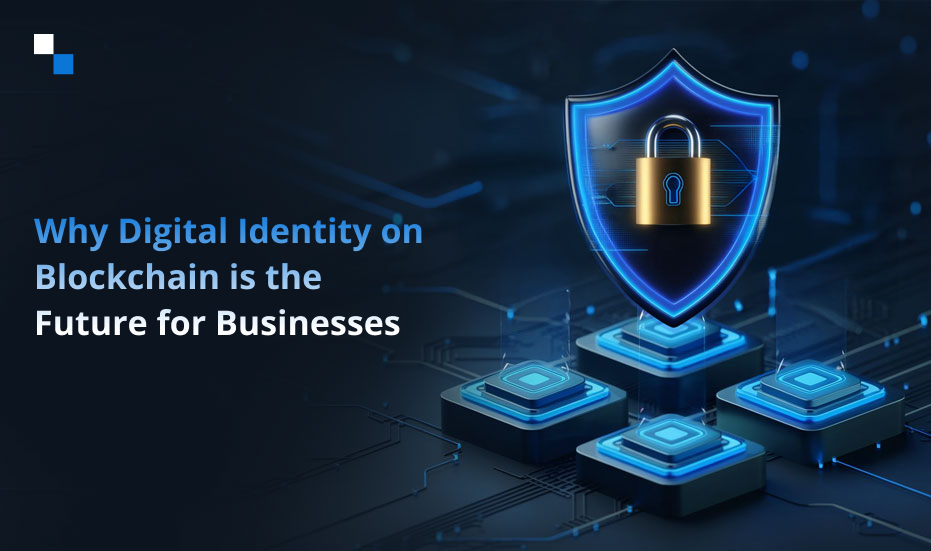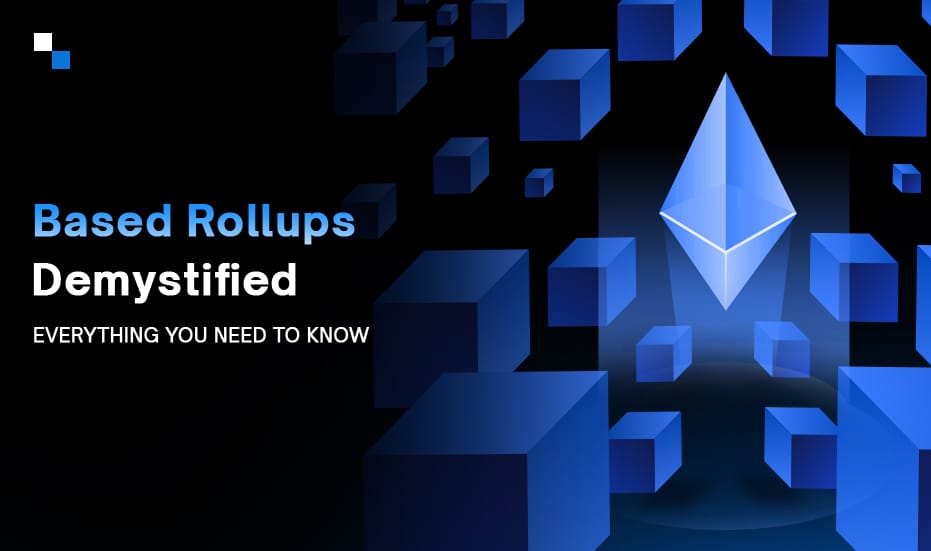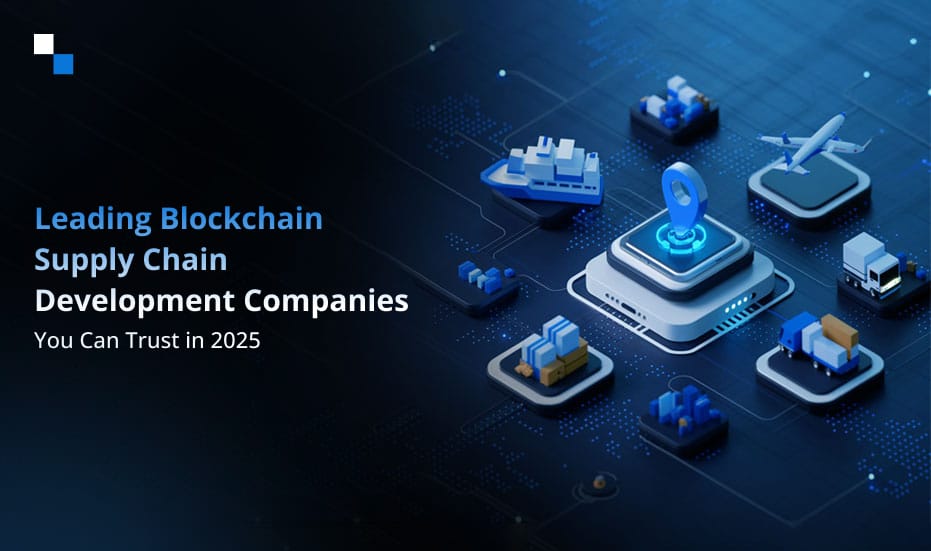
How Would Web3 Development Impact Businesses in Future?
April 11, 2023
The Usefulness of Blockchain Applications in Healthcare
April 11, 2023Although many people do, this link between Bitcoin and blockchain technology is not fully accurate. One of the numerous initiatives that have grown significantly in popularity due to a wild price increase is Bitcoin. Nevertheless, underneath all this fanfare is advanced technology. A distributed ledger, or blockchain, is a series of interconnected blocks that each contain a specified set of data that serves as a record of each transaction. There are two categories that it can be divided into public and private, depending on the level of access. The private blockchain development process gained maximum popularity! Let’s begin exploring how to create a private blockchain. Read on to discover how all of this works.
What Is a Private Blockchain?
A private blockchain is a network that only a single person or authority can access. Private blockchains—also known as regulated blockchains—are technological solutions where each user has a predetermined amount of access. It is impossible to observe the data that is uploaded to the private blockchain.
Each transaction in the chain must be verified by every computer connected to the network. Blocks that can hold thousands of records are used to process transactions. When a block’s memory is exhausted, it is closed, signed, and transferred to a new block as a distinct hash. As a result, every block is linked to the one before it. A transaction cannot be changed or returned thanks to its structure. However, private blockchain development has some characteristics that set it apart from public blockchain, including the following:
- There is complete or partial centralization on a private blockchain. Such blockchains use specialized servers with enhanced capabilities to carry out management. They verify data entry into the blockchain and are in charge of the data distribution and user identification policies.
- Only participants with the proper permissions can capture information in private blockchains. Depending on the structure, information access may be open to all or restricted to certain groups.
- Specific protocols are required for the working mechanism and access policy of the private blockchain system.
- The owner of the private network has the authority to alter, delete, or override blockchain records.
How Can Creating a Private Blockchain Benefit Your Business?
- Great security
Private blockchain enables businesses to increase network security by limiting access to their network to authorized users and employees. Additionally, businesses can obtain precise information about every participant in their network and respond quickly if they notice any suspicious activity.
- Low cost
Blockchain development companies use their own network, so they are exempt from transaction fees and other costs associated with using public networks. Additionally, businesses can build applications on their network to reap the rewards in full.
- More transparency
This enables greater coordination and verification between businesses and their network participants.
- Data security
Companies can make sure that their data is protected and shared solely with reliable sources because their network only allows authorized users access.
- Better performance
It has fewer users than a public network, which limits some operations like transactions and verification. Also, all transactions are automated using smart contracts, enabling businesses to complete commercial transactions quickly.
- Energy efficient
Private blockchains provide pre-mined money, whereas mining bitcoins demands a lot of computer power. Hence, it uses less energy than the open blockchain. Reduced involvement in various activities reduces the network’s workload, which can help it function better.
- Accessible
Users of many private blockchains can collaborate with banks and other financial organizations. As a result, technology is more usable and accessible.
- No illegal activity
Private blockchain development‘s ability to limit criminal activity—which is prevalent for cryptocurrencies like Bitcoin—is one of its most significant advantages. Private blockchains are permissioned This implies that the platform can only be accessed by authorized users. This reduces criminal activity.
- Empowering enterprises
The blockchain development company is utilized to empower businesses. It places greater emphasis on the success of the company as a whole than on specific employees. It is clear that such a strategy boosts a business’s overall growth and raises revenues. Moreover, it can be utilized to create business blockchain platforms.
- Performance with data integrity
Depending on how many transactions are being processed at once and how much each user is prepared to pay, blockchain transactions can take up to 30 minutes or even several hours. Private blockchains are permissioned, meaning users must have the authorization to join and use these networks. It lessens the chance of public disclosure of sensitive data.
A public blockchain makes it nearly difficult for anyone to alter data without controlling 51% of the nodes. Private blockchains can be altered, though, by providing all participants with the means to agree to a change or by introducing logic to their behavior. This makes it possible to change data and alter a blockchain’s reasoning. Hence if you are deciding to create a private blockchain, it’s a profitable decision!
Hire us for Private Blockchain Development Services
Schedule Free DemoSteps for Successful Private Blockchain Development
STEP #1: Understand your business goals.
Knowing why you should build a network for your company can help you plan your strategy and accomplish your objectives. Determine your target market and consider the features and capabilities that will help your network be successful. You can include elements that are typical of that network, such as healthcare, finance solutions, gambling, etc. if you are going after a certain niche.
STEP #2: Hire blockchain developers.
You can start from scratch while building your platform by hiring a blockchain development company. Only qualified blockchain engineers possess the severe technical skills needed to create a private blockchain. Blockchain developers can be hired in a variety of methods, including as freelancers, in-house developers, or outsourcing your project to a blockchain development firm. You should outsource your project to seasoned blockchain development businesses if you want the best results.
STEP #3: Create a private chain.
Configure the chain parameter in the genesis block. You will choose your network’s speed during this procedure. The block generation difficulty rating can be set to zero. Pre-allocate addresses along your network using fictitious crypto balances next. As you need to transit through the primary blockchain network, this makes ether fake. You can, however, presume that the procedure is a fictitious transaction for your network.
STEP #4: Create users’ accounts and smart contracts
Users’ accounts will function as digital purses where they can make network transactions. For instance, users can use cryptocurrency as payment to obtain the services and goods offered on the network. You may consider nodes to be EVM or computers connected to networks. To execute participants’ equal rights over the output, there must be a sufficient number of nodes.
STEP #5: Plan for required decentralized apps..
Developing your own blockchain platform by yourself won’t be sufficient, and you’ll need to need some apps to fulfill your business needs. You can build apps for storing data records, enabling cryptocurrency transactions, and serving a variety of other functions on your blockchain platform.
Two essential components are required for creating dApps on your networks, i.e.,
- Sensible contracts (to automate transactions and other processes.)
- Platform User Interface (allowing users to interact with your network).
STEP #6: Deploy apps to your blockchain.
When the dApps are prepared, you can upload to your network their smart contracts and the remaining app parts. Make sure your partner blockchain developers are adhering to Agile methodology in order to assist you in staying current on your project and enable you to continue maintaining and developing your apps.
Contact Antier to create a private blockchain
Utilizing blockchain technology for data distribution lowers the need for human intervention, improves operational transparency, and boosts data security. As a result, private blockchain development opens up new possibilities for various procedures and can eliminate many middlemen. Public and private blockchain development can be divided into two major categories. Although the two systems operate on the same principles, a private blockchain is less decentralized and does not offer anonymity.
You may encounter difficulties when beginning your blockchain development due to the high demand and limited supply of blockchain coders. Get in touch with us about setting up your network, you can put an end to your hunt for qualified blockchain developers. Our team has expertise in building decentralized networks, and we can provide you with assistance with specialized blockchain-based development services like building cryptocurrencies, the metaverse, decentralized applications, etc.



